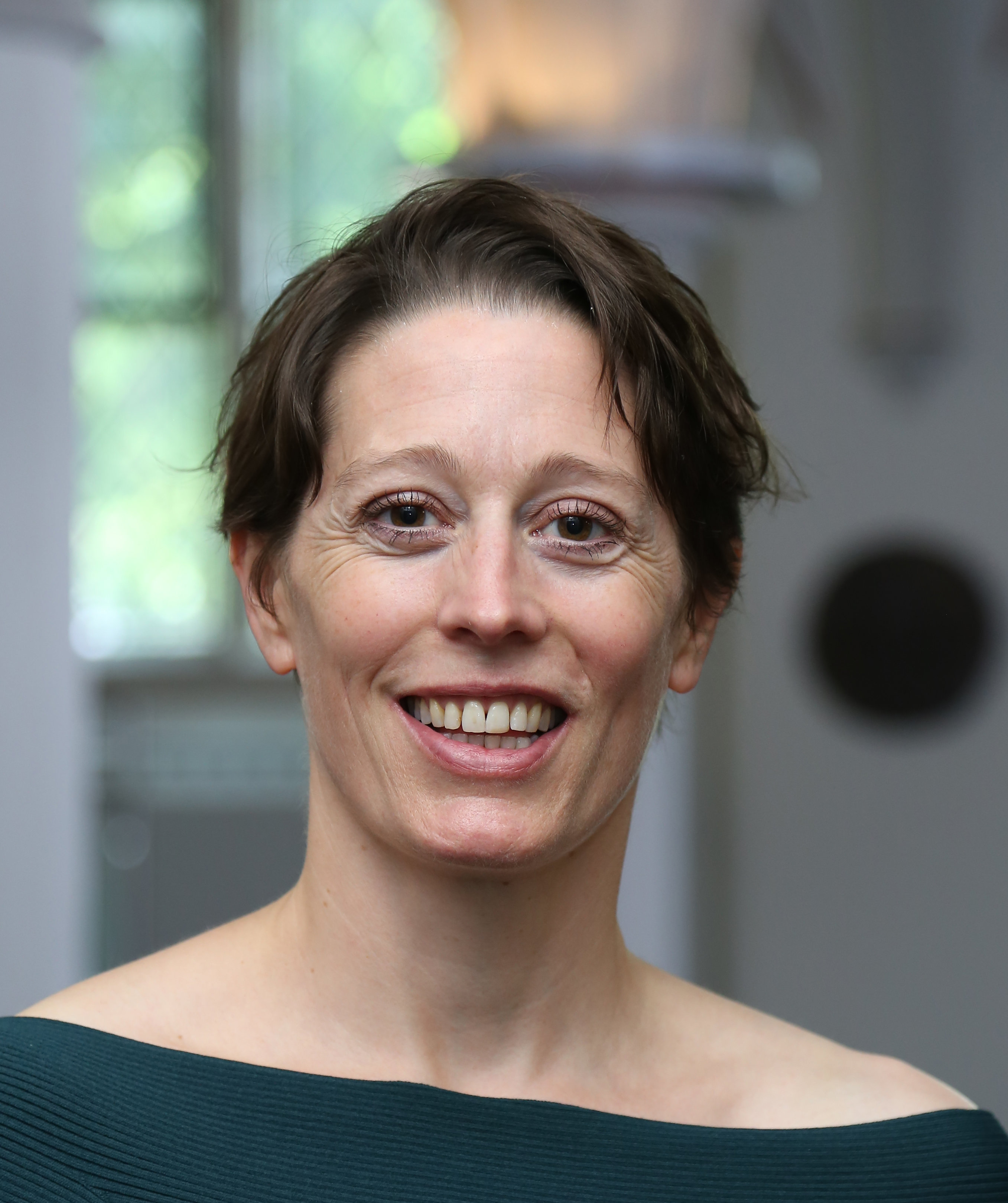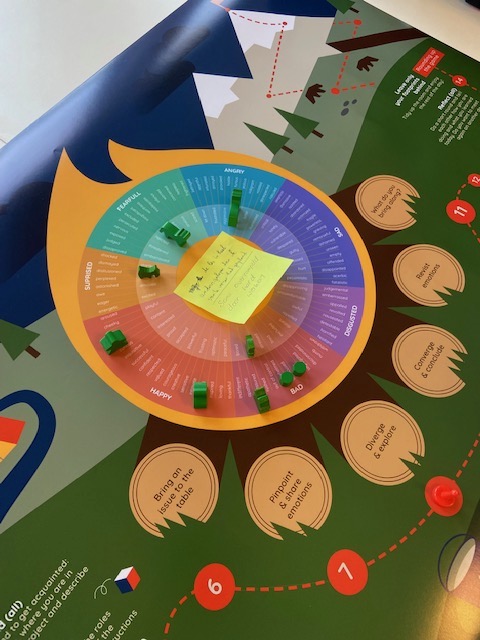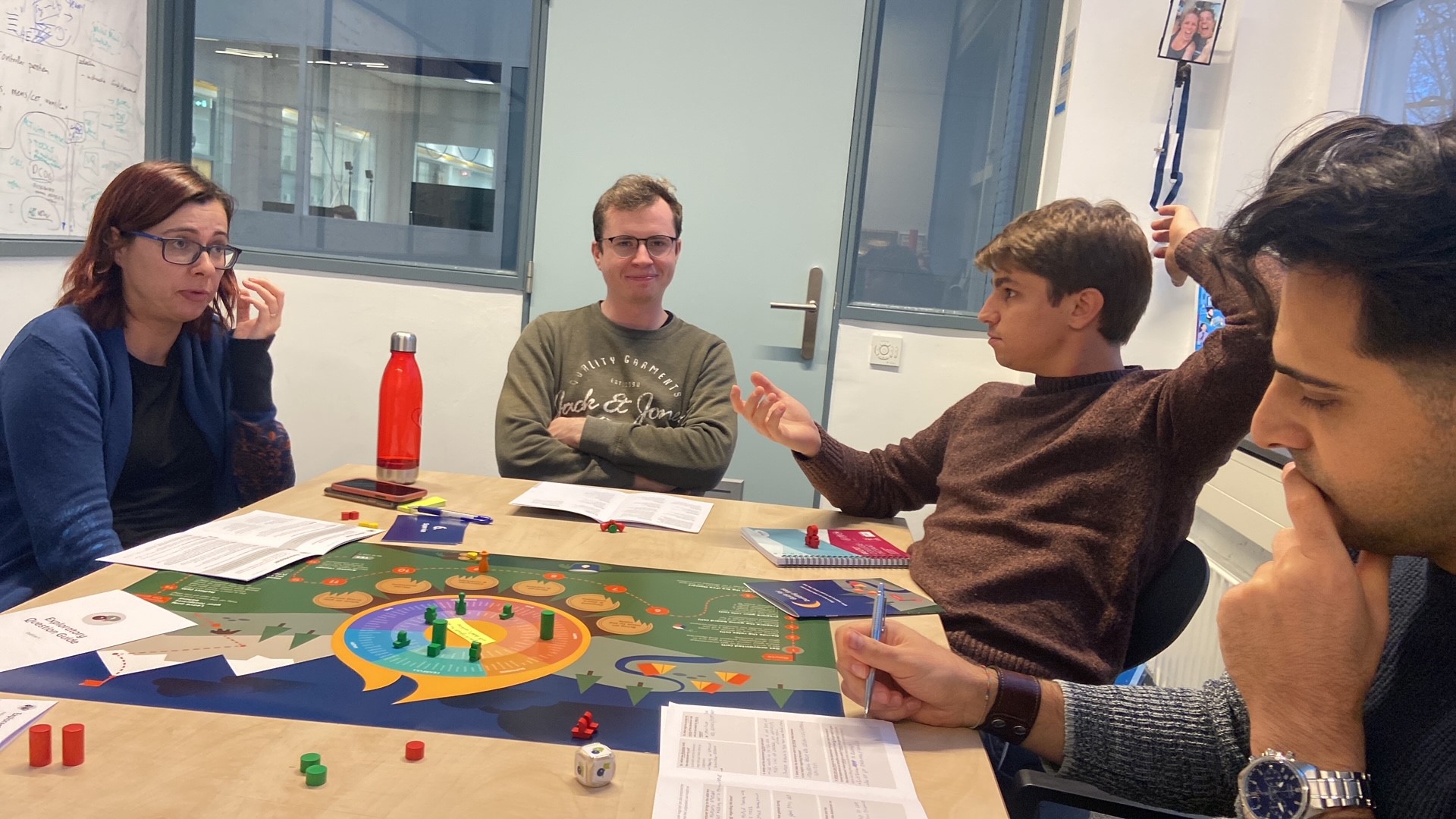Educating the whole, reflective engineer
By Heather Montague
It takes more than technical knowledge to educate and prepare the engineers of the future, says Pleun Hermsen, founder and Director of the Reflective Engineer Programme at TU Delft. As part of her work on integrating reflection into education, she developed Campfire Talk, a peer-to-peer serious game to empower students as they navigate through the graduation process. This project was realised through a Comenius Teaching Fellow grant.
Reflection is the key
With a medical background and a passion for education, Hermsen started at TU Delft in 2013 as Programme Director for Clinical Technology – Technical Medicine (3mE). Over the years she saw a breadth of learning opportunities, but felt something was missing. “We focus on knowledge in our education and not so much on students becoming responsible adults who use their engineering for a wider scope than just fixing a problem,” she said.

Through her work with students, Hermsen came to the conclusion that a key factor was the need for reflection. “In the mission and vision of TU Delft there’s a lot of talk about responsible engineers, solving wicked problems, dealing with people from different backgrounds, and inter- or transdisciplinary work,” she said. “Those are things you need to learn how to do and reflection is part of it.” So how do you teach reflection?
We focus on knowledge in our education and not so much on students becoming responsible adults who use their engineering for a wider scope than just fixing a problem.
Pleun Hermsen
Context matters
Implementing education on a large scale can be challenging, especially with a topic like reflection that is context-dependent. The Reflective Engineer programme, which Hermsen initiated and leads, aims to embed long-lasting interventions in existing educational structures, tools and practices by taking the system and the people doing the work into account. They want to make reflection more accessible and concrete within the context of engineering education in Delft. “The goal,” says Hermsen, “is to create something that doesn’t end up on the shelf, rather something that adds value.” In co-creation with educators, support staff and students, the team is developing, customising, and prototyping reflective interventions to address specific situations that are relevant and important to the actors involved.
Discovery of a discrepancy
One such situation came to light when Hermsen noticed a pattern with students struggling within their graduation journey. They were capable, she explains, but they were struggling with their graduation process for various reasons. There were feelings of being unprepared, uncertainty about the process, fear of asking questions and being unclear about the expectations of their supervisors, amongst other things. Hermsen also saw supervisors dealing with these issues more from a content perspective rather than from the process perspective, revealing a discrepancy between students and supervisors. “If you ask a question, your supervisor can answer it by giving you the necessary content or they could ask why you are struggling, what’s holding you back, asking more questions to dive into what is actually going on instead of fixing the problem for you,” she said. “When I talked to students, they really appreciated if you’d ask them questions so they could fix it themselves.”
You can prepare for an adventure but things can also go wrong, unexpected things happen and it’s completely fine.
Pleun Hermsen
Purposeful game
Hermsen started playing with this idea and thought there must be a way to help students with the process of graduating within the parameters that exist in the faculty. “I needed to make something that’s scalable and removes the moderator or the coach from the equation,” she said. Through the Comenius Teaching Fellowship and with the help of game designers from the HKU (Utrecht School of the Arts), she developed a serious game called Campfire Talk. It’s a peer-to-peer intervision based on Ludo didactics, which Hermsen describes as a method of designing learning behaviour and learning experiences using game principles.
The game is created around the idea of being on an adventure – in this case, graduating. “You can prepare for an adventure but things can also go wrong, unexpected things happen and it’s completely fine,” said Hermsen. “It normalises the idea that things can go wrong.” With participants playing different roles, the game creates a safe atmosphere where students can share difficult issues they face during their graduation and the emotions they experience through the process. Exploring the issue together, students learn from the experiences of others while practising conversation skills and empathy.

Growing awareness
After an iterative testing and feedback process with both students and supervisors, Hermsen said the responses to Campfire Talk have been positive. “Students are finding it powerful and are amazed at how helpful it feels to talk about their emotions,” she said. Supervisors shared that their students expressed feeling less alone and that the game created a way of talking to others that can be translated to different circumstances or contexts. As a result, students were also more open to learning new skills and receiving feedback.
Now, Hermsen wants to create awareness for the game amongst students, faculty and staff. It will be available as both a tangible board game as well as a downloadable version so that anyone can play it on their own. On December 1st, there will be a workshop open to anyone interested in experiencing the game and learning about potential applications. “I designed it around graduation issues, but I’m also trying it out with research related issues and teacher training issues. I think with small changes it’s really easy to copy and paste the game to use it in another context.”
Find here more information about the Reflective Engineer, the Campfire Talk, Ludo didactics and the workshop.
